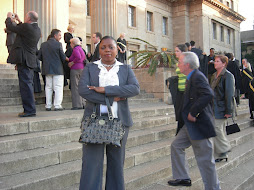Government Accountability in Africa: “power must control power”
Democracy in Africa still has a long way to go because it is undermined by a widespread culture of corruption. Most African regimes fail to ensure oversight system within the government or thanks to a strong civil society. In a recent report, Gary Hawes argues that, “effective and democratic government is impossible without transparency and accountability; without transparency, citizen participation is inherently less well informed and less effective. Without accountability, those in position of power can safely ignore the will of the people” (Gary Hawes, Making Governments More Accountable: The Impact of Civil Society Budget Analysis and Monitoring, The International Budget Project, BriefsYear 01•Number 02•2008).
In the context of most African governments, these challenges need to be taken up by new forms of oversight of governments’ actions that should be developed by both civil society and government agencies. The principle remaining, “power must limit and control power”. Where leaders are left alone without any mechanism of oversight, abuses and corruption become the rule.
What can be accomplished when civil society and government agencies, such as “The Scorpions” in South Africa, take up the fight to make governments more accountable? The struggle against corruption and its contribution to government accountability can become more effective. Through citizen education and engagement, governments’ budgets can become more transparent, i.e., more accessible to the public and better understood by the average citizen. Acting in such way contributes to the capacity of voters to hold their leaders accountable.
It is ridiculous to see very rich African countries, such as the DRC, with a very poor population while its leaders are millionaires. Ironically, none of those leaders think that we can improve life standards for every Congolese if there is more transparency and more accountability in the management of the country’s natural resources. Rather, they are all obsessed by foreign aid and assistance, which again only benefit – unfortunately – to themselves (cf. Review of the Department of Institutional Integrity at the World Bank, published by Beatrice Edwards & Truman Morrison of the Government Accountability Project - GAP in Washington D.C. on the 5 September, 2007). How long this will still last?
Saturday, May 10, 2008
Subscribe to:
Post Comments (Atom)





No comments:
Post a Comment